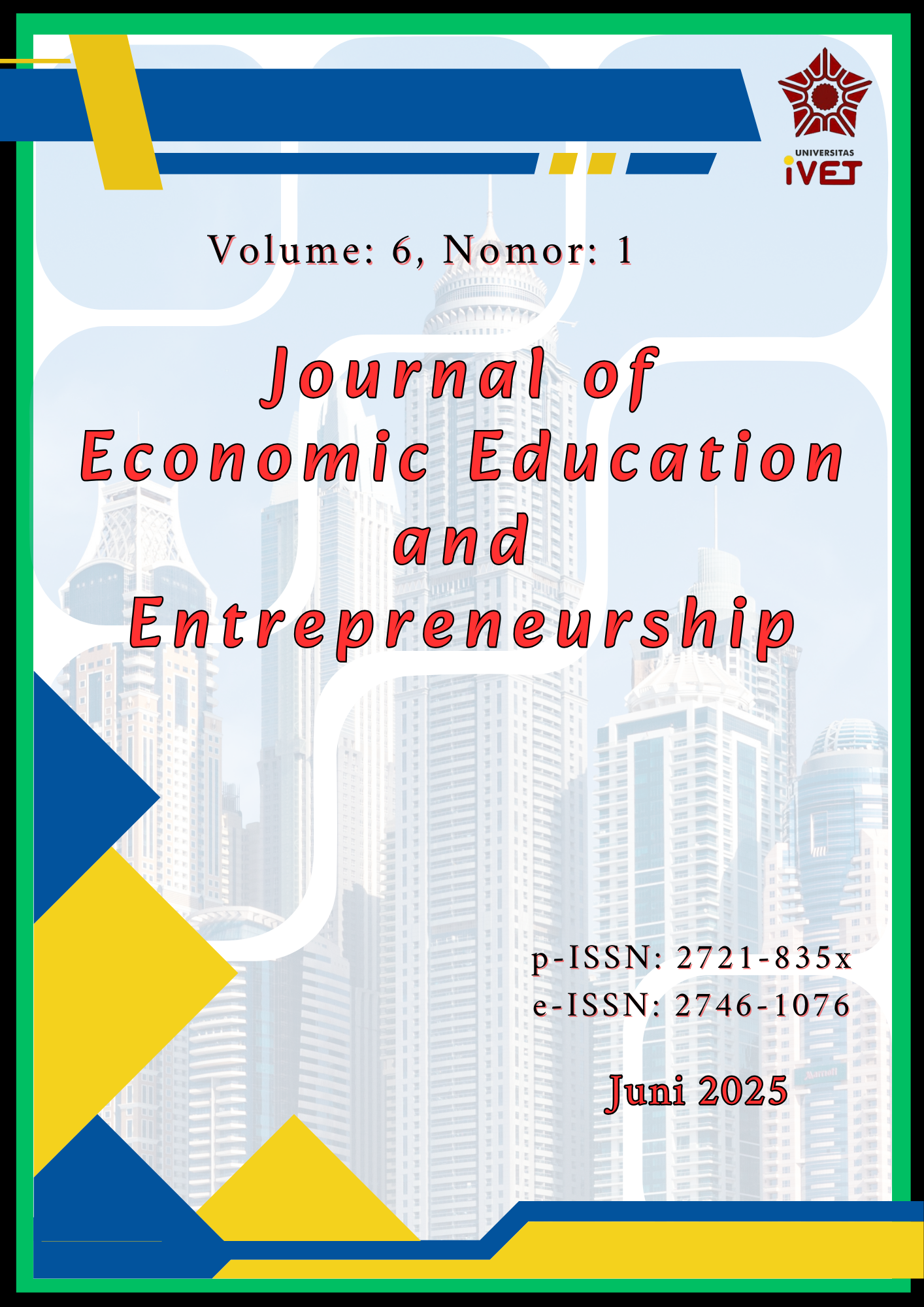Pemanfaatan Bahasa Inggris sebagai Modal Berwirausaha di Kalangan Mahasiswa Sastra Inggris Reguler B Universitas Pamulang
Abstract
This study aims to examine how students of the Regular B class in the English Literature Study Program at Universitas Pamulang utilize their English language skills as capital in entrepreneurial activities. The background of this research stems from the growing reality that in today’s digital and global era, English is not only a tool for academic communication but also a strategic asset in building service-based businesses. This research uses a descriptive qualitative approach, with data collected through observation, questionnaires, and interviews with 15 students actively involved in entrepreneurship. The findings reveal that students use their English proficiency in various types of businesses such as private tutoring, translation services, content writing, and freelance work on digital platforms. These ventures are characterized by time flexibility, minimal capital requirements, and the potential to reach global markets. However, students also face challenges, including time constraints, lack of business training, and low confidence when dealing with international clients. The study concludes that English language competence is a valuable asset that can be developed into entrepreneurial capital, especially when supported by a campus environment that integrates academic skills with practical entrepreneurship.
Downloads
References
Bourdieu, P. (1986). The forms of capital. In J. Richardson (Ed.), Handbook of Theory and Research for the Sociology of Education (pp. 241–258). Greenwood.
Cohen, L., Manion, L., & Morrison, K. (2018). Research Methods In Education (8th Ed.). Routledge.
Dewi, R. K., & Ramadhani, A. (2021). Pelatihan kewirausahaan digital berbasis Bahasa Inggris untuk pelaku usaha pemula. Jurnal Pengabdian Kepada Masyarakat BEMAS, 5(2), 112–120.
Kementerian Pendidikan dan Kebudayaan. (2020). Panduan penyusunan kurikulum pendidikan tinggi di masa pandemi COVID-19. Direktorat Jenderal Pendidikan Tinggi.
Moleong, L. J. (2017). Metode Penelitian Kualitatif (Edisi Revisi, Cet. 36). Bandung: Pt. Remaja Rosdakarya.
Nasution, S. (2016). Usul Tesis, Desain Penelitian, Hipotesis, Validitas, Sampling, Populasi, Dan Teknik Analisis Data. Bumi Aksara.
Nuraini, D., & Utami, A. P. (2022). Pengembangan potensi kewirausahaan mahasiswa melalui integrasi soft skill dan kompetensi akademik. Jurnal Pendidikan Ekonomi, 17(1), 23–30.
Sari, A. P. (2020). Freelancing in the digital era: English literature students’ perspectives and strategies. Journal of English Language and Business, 3(2), 65–74.
Silverman, D. (2016). Qualitative Research (4th Ed.). Sage Publications.
Sugiyono. (2011). Metode Penelitian Kuantitatif, Kualitatif Dan R&D. Bandung: Alfabeta.


